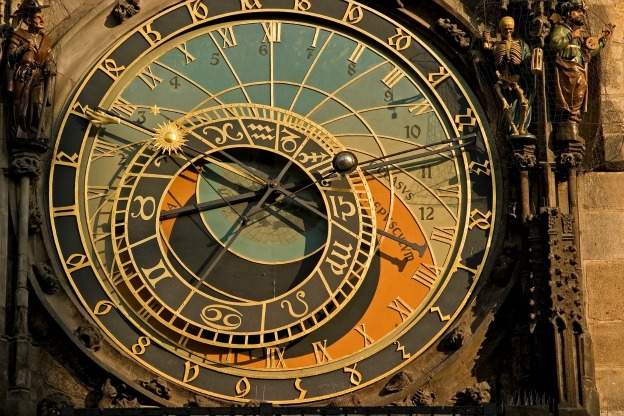
Time capsule for this episode:1390
In the 17th-century, the city of Prague experienced a resurgence of cultural and musical life inspired by foreign influences.
Following conflicts of religion and rule between Bohemia and its Habsburg lords, foreign appointees based in Vienna made frequent trips to and from Prague's opulent Baroque palaces. But under such absentee rule, patrons to the arts became few and far between, resulting is a degradation of artistic life and the flight of many talented musicians to other places. But in the intermingling of local and foreign influence a slow regeneration began...
Liturgical music in Prague
Within the church, liturgical genres, such as the oratorio and sacred concerto, thrived. A school of organ playing develops around Bohuslav Matej Cernohorský and his pupils. These include Josef Seger, employed at the Crusaders' Church and the Church of Our Lady before Týn.
Another composer of liturgical music at work in Prague is Jan Dismas Zelenka. After arriving in the city from a small town southeast of Prague, Zelenka pursues musical studies at the Jesuit College Clementinum. There, he becomes an expert player of the violone (an instrument quite similar to the modern-day double bass) and composes his first sacred works.
Opera
Opera is largely a foreign affair in Prague during the 17th- and 18th-centuries. In the 1750s, the city saw successful premiers of Christoph Willibald Gluck's operas Ezio and Issipile.
In 1783, Count Nostitz established the Nostitzches Nationaltheater, later called the Estates Theatre, which accommodated the local public with Czech performances and opera in other languages.
The success of the Nostitzches Nationaltheater links with that of Wolfgang Amadeus Mozart. Positive reception of his The Abduction from the Seraglio (Entführung aus dem Serail) and The Marriage of Figaro (La nozze di Figaro) attracts the attention of the theater's musical director, Pasquale Bondini, and at whose request, Mozart composed music for a new opera: Don Giovanni. The theater premiered the opera in 1787.
Czech composers
The last leg of our trek through 17th- and 18th-century Prague takes us to instrumental music by Czech composers.
One highly acclaimed violin virtuoso was Franz Benda, a Czech native who, after working throughout his homeland as a wandering musician, took his skill to the court of Frederick the Great. He remained in the service of the court for a large extent of his adult life, playing close to 50,000 concertos in a span of forty years.
Another Czech native travelled throughout life in pursuit of music. As a young man, Joseph Myslivecek studied composition under Franz Habermann and Josef Seger. Following that, he journeyed to Venice, where he came to be known as il Boemo, or “the Bohemian." In Bologna, Myslivecek became acquainted with a young Mozart and grew to be a favorite of the Mozart family. In a letter to his father Leopold, Wolfgang Amadeus described his friend as "full of fire, spirit and life."
A third student of Prague is Johann Stamitz. Stamitz worked for one year at the University of Prague before abruptly departing to forward his performance career. It is possible that he, too, travelled greatly prior to his appointment at the Mannheim court. There, his extensive symphonic output helped establish the importance of wind instruments and develop what would come to be known as the sonata form.
Feature release: Sacred Music by Sebastian Knüpfer
Our featured release explores the music of Sebastian Knüpfer, musician to the city of Leipzig.
Sebastian Knüpfer studied a diversity of subjects in Regensburg, including music, poetry, and philology. He then moved on to Leipzig, winning singing positions and vying for the post of Thomaskantor along with four other candidates. Knüpfer won the post in 1657 and continued his musical and intellectual contribution.
The CD Sacred Music by Sebastian Knüpfer, which was recently reissued by the Hyperion label, is one of over ninety recordings by period orchestra and chorus The King's Consort, under the direction of conductor and harpsichordist Robert King.









